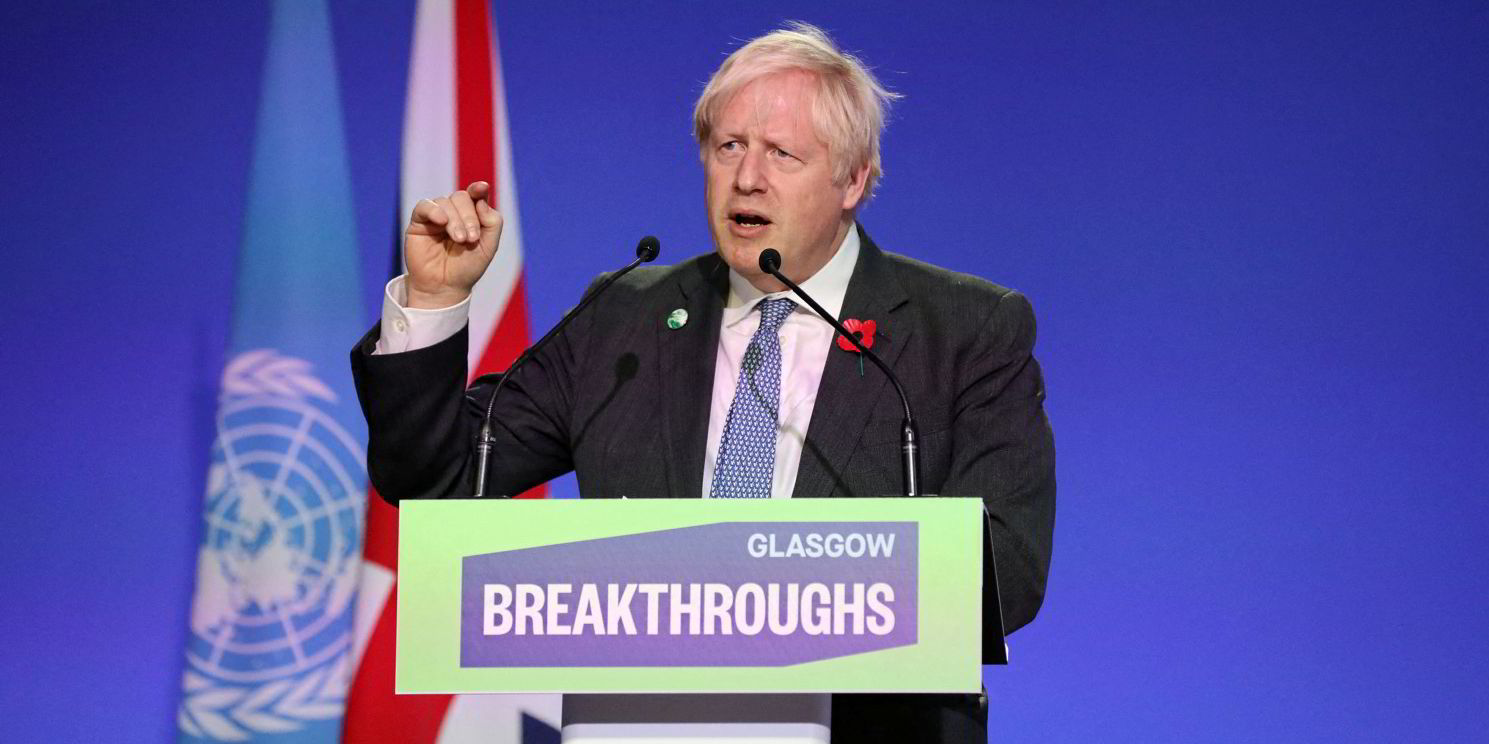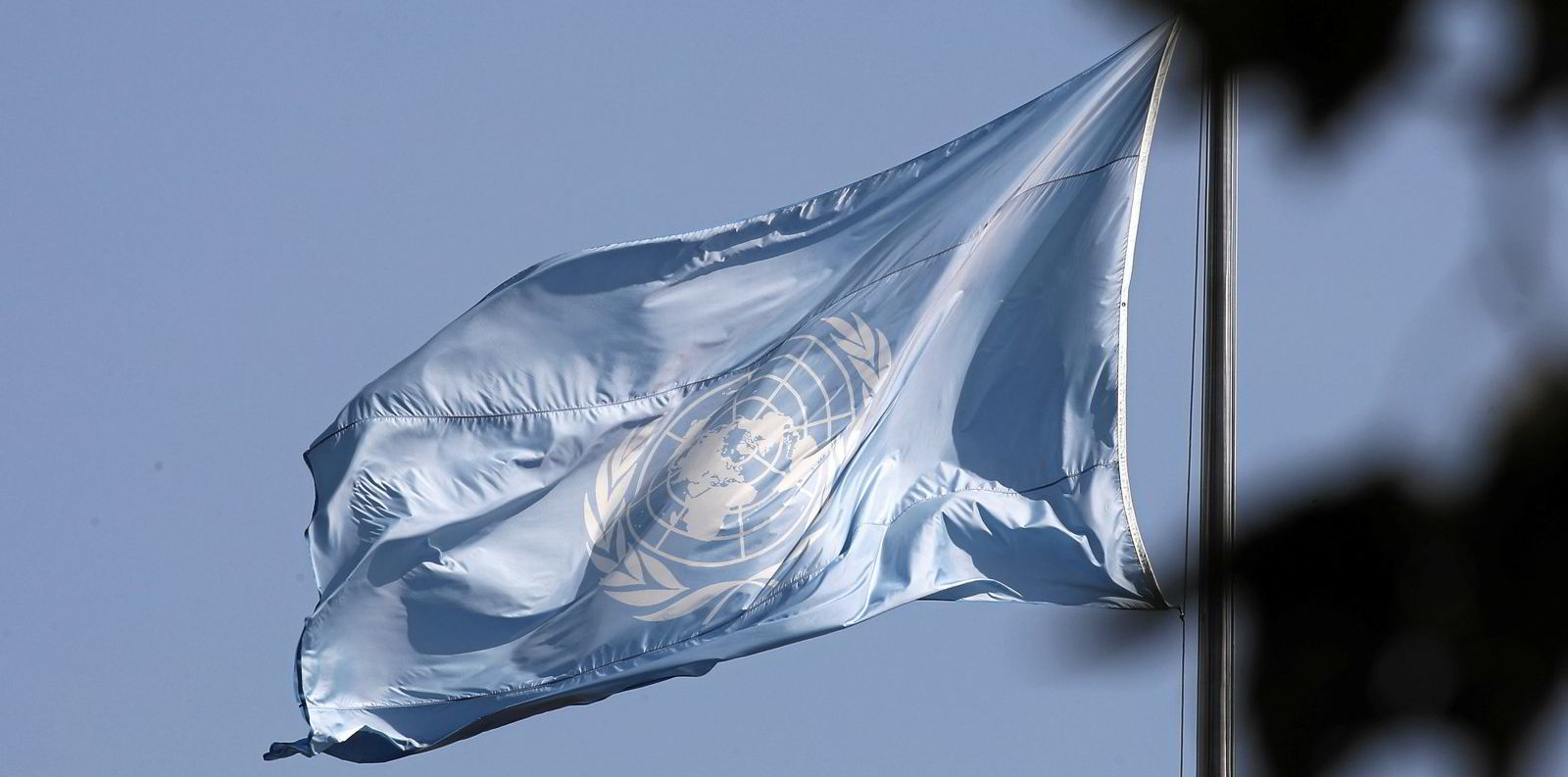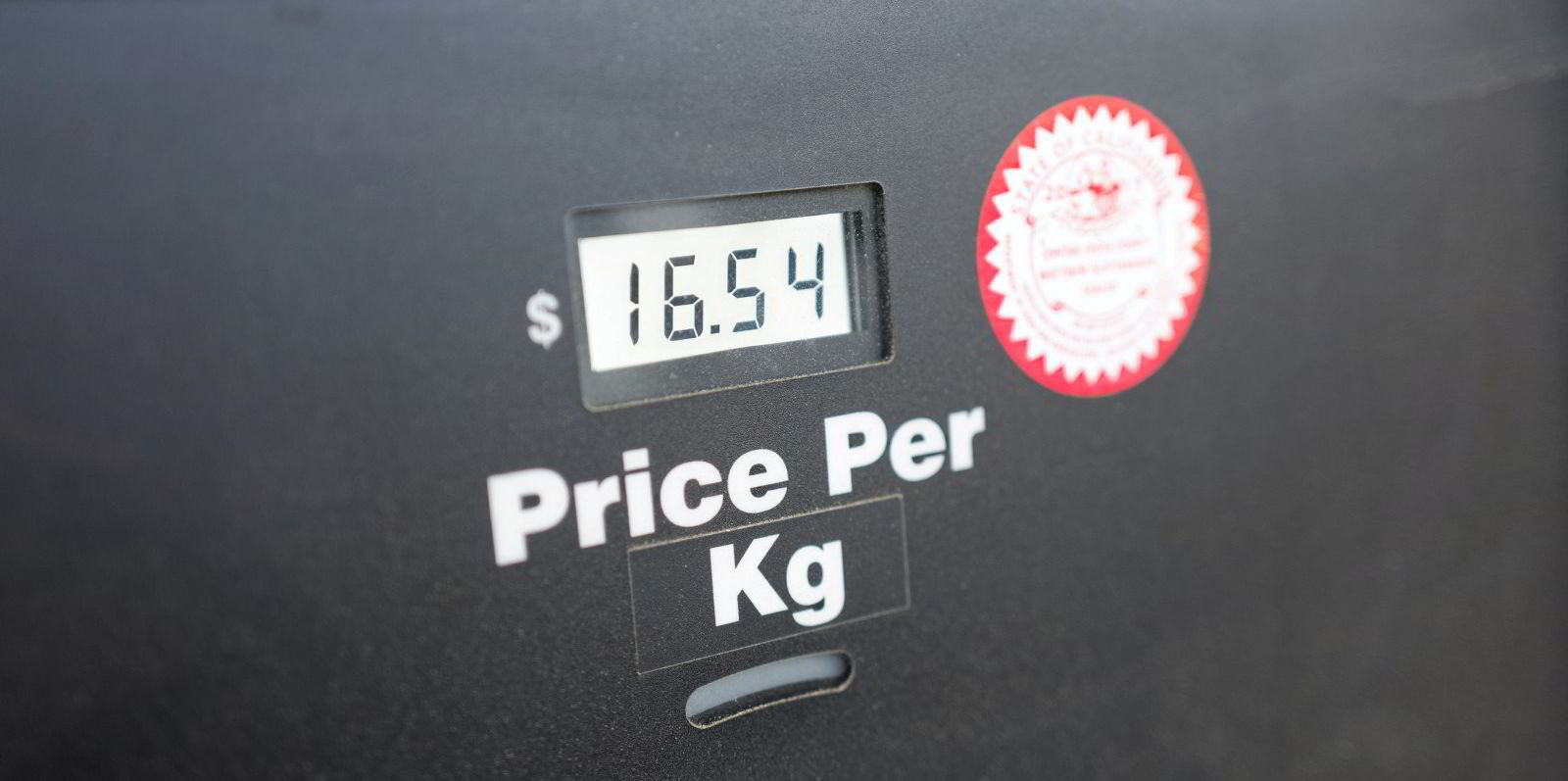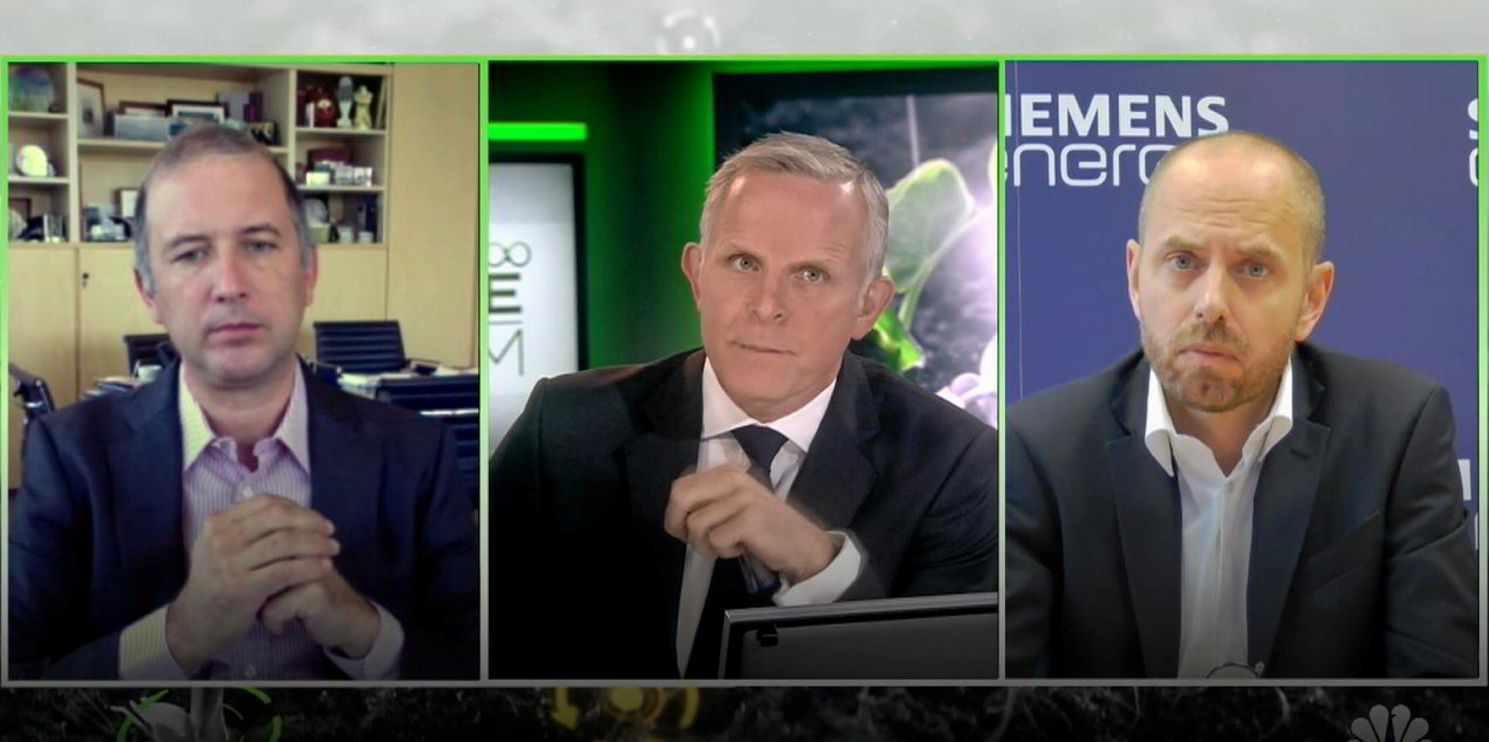BLUE H2
Nations agree to ensure clean hydrogen is affordable and available globally by 2030
UK Prime Minister Boris Johnson speaks during the World Leaders' Summit "Accelerating Clean Technology Innovation and Deployment" session at COP26.Photo: AFP/Getty
A total of 32 countries, plus the EU, will work to accelerate the growth of renewable and 'low-carbon' H2 — one of four new 'Glasgow Breakthroughs' goals that seek significant progress on clean tech by the end of the decade
A total of 32 countries, plus the EU, have agreed to work together to accelerate the development and deployment of clean H2 and ensure that “affordable renewable and low-carbon hydrogen is globally available by 2030”.
The pact — agreed at COP26 by nations including the US, China and India — was one of four so-called “Glasgow Breakthroughs” — new global goals aiming to make clean technology and sustainable solutions “the most affordable, accessible and attractive option” for their respective sectors by the end of this decade.
The other 2030 targets in the “Breakthrough Agenda” are: to make clean power “the most affordable and reliable option for all countries”; for zero-emission road vehicles to become “the new normal”, and for near-zero-emission steel to become the “preferred choice in global markets”.

'Beware fossil fuel vested interests': UN backs renewable hydrogen to meet climate goalsRead more

'Hydrogen Council resorts to warped logic and dubious assumptions to make the case for H2 cars'Read more
Beyond these one-line aims, a statement announcing the agreements revealed no detail as to how these goals would be met in practice, other than saying that the International Energy Agency (IEA) will produce annual progress reports — in collaboration with the International Renewable Energy Agency (Irena), the UN High-Level Climate Action Champions and “other institutions, bodies and industry leaders”.
The current UN “champions” are two businessmen — the UK’s Nigel Topping and Chile’s Gonzalo Muñoz — who last month warned policymakers to beware of the “vested interests” of fossil-fuel companies seeking to use hydrogen as a lifeline for their existing operations, and that green H2 was “the only option strictly aligned” with global climate goals.
This puts them in direct opposition to the fossil-fuel-led lobby group, the Hydrogen Council, which argues that 20-40% of all H2 produced in 2050 will be blue — produced from fossil fuels with incomplete carbon capture and storage. The Hydrogen Council is listed in the Breakthrough Agenda statement as one of the eight “leading initiatives for international collaboration” on the development of H2, potentially giving it a role in the annual progress reports.
For the hydrogen target, the progress reports will focus specifically on the production costs, volumes, greenhouse gas abatement and “investments in the research, development and demonstration and deployment” of “renewable and low-carbon hydrogen”.
Countries that signed up to the H2 target include the US, China, India, Japan, South Korea, the UK, France, Germany, Australia, Canada and Chile.
“The 2020s must be a decade of delivery across all major emitting sectors,” said the statement from 41 countries plus the EU (not all of which signed up to the hydrogen part of the agenda).
“While we acknowledge our different national circumstances, we will endeavour to work together in each sector, including through public-private collaboration and by mobilising finance at scale, to make the global transition to a clean economy faster, lower cost and easier for all, while making solutions to adaptation more affordable and inclusive.

'There is no commercial case for green hydrogen — unless government incentives or quotas are put in place', say CEOsRead more
“The benefits of this Agenda go beyond tackling climate change alone. Our ambition is to catalyse the growth of markets, jobs and economic development globally for clean technologies and sustainable solutions, support the achievement of the UN Sustainable Development Goals, strengthen the climate resilience of our societies and realise multiple cobenefits such as cleaner air, water and better health.”
The statement concluded by saying: “We invite all other states to join the Breakthrough Agenda.”
The countries that signed up to the H2 target are: Australia, Belgium, Canada, Chile, China, Denmark, Egypt, Finland, France, Germany, Guinea Bissau, India, Ireland, Israel, Italy, Japan, Kenya, Lithuania, Norway, Mauritania, Morocco, Namibia, the Netherlands, New Zealand, Panama, Slovakia, South Korea, Spain, Sweden, Turkey, the UK and the US.(Copyright)
Technology
No comments:
Post a Comment